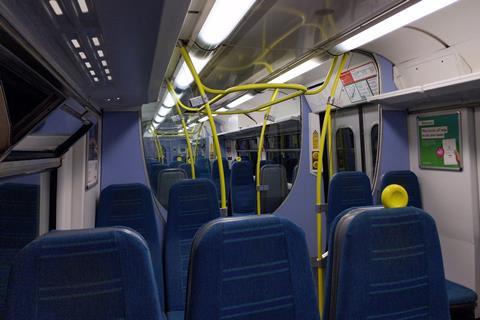
UK: The government and rail sector have agreed a plan for the gradual reduction of train services to reflect lower passenger demand as people stop unnecessary travel and decrease non-essential social contact in line with advice to help stop the spread of the coronavirus.
Under plans to be implemented from March 23, train operators will run core services to ensure people are still able to get to work and access medical appointments, and to ensure that the flow of freight continues. Reducing services will also help protect the welfare of frontline employees, and provide resilience as staff self-isolate.
‘For passengers in crucial roles, including essential workers in our emergency services and NHS, alongside people who need to attend medical appointments or care for loved ones, these changes protect the services they rely on’, said Secretary of State for Transport Grant Shapps on March 20.
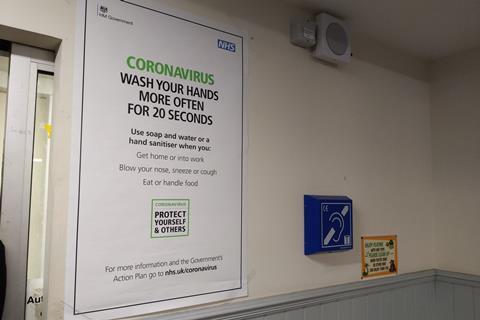
Robert Nisbet, Director of Nations & Regions at the Rail Delivery Group, said ‘at a time of extraordinary national challenge, the measures rail companies are putting in place with government will preserve services so that we can continue to get key workers to where they need to be, deliver food to supermarkets and get fuel to power stations’. He said ‘this is not a decision we take lightly. However, implementing these measures now will mean that we can continue to operate trains over a prolonged period with fewer railway workers, who like so many others are to be commended for putting the needs of the country first, and whose safety remains front of mind.’
Similar measures have been agreed by the Scottish and Welsh governments, and Transport for London has already announced a reduction in its usual level services.
Welsh Government Minister for Economy & Transport Ken Skate, said the change ‘aims to balance the current significantly reduced levels of passenger demand as people follow the guidelines to socially isolate with the need to reduce the number of people required to run the network.’
Scottish Transport Secretary Michael Matheson said the Scottish Government was ‘investigating ways to provide proportionate relief to operators, while also ensuring contractual incentives remain to mitigate the impact of doing so. Any changes to rail franchise contracts, including funding mechanisms, will be made in the best interests of the public and business communities.’
Industry response
Transport Focus and London TravelWatch Chief Executive Anthony Smith said the changes were ‘a pragmatic response to the dramatic fall in passenger numbers and rising staff illness – there is no point in running empty trains and buses. But the remaining service must meet the needs of those who still have to travel’.
The watchdog has published some principles that it believes should be followed, including ‘protecting first and last services, providing enough capacity to keep passengers at a safe distance from each other and making the new timetable reliable and the information accurate.‘
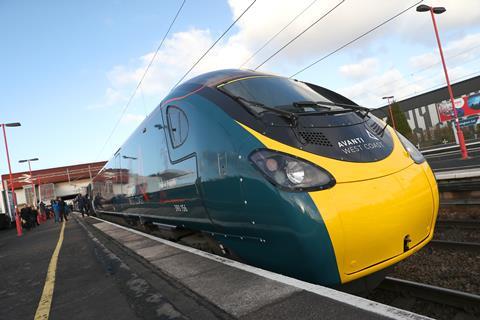
FirstGroup said approximately half of services would be running at its operators, including Avanti West Coast, with a focus on supporting early, late and peak time services to ensure key workers can get to their workplaces.
c2c said its new timetable reflected the significantly reduced levels of current demand, while also minimising how many staff it depends on to keep services running. It also highlighted its Flexi-Season tickets for passengers needing more flexibility in their travel.
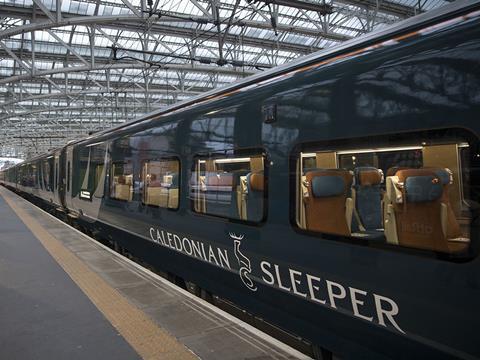
Caledonian Sleeper said ‘there is obviously a potential for Covid-19 to cause significant disruption but all our plans are designed to ensure that our services can continue for as long as possible, albeit we may have to make short-notice alterations to the manner in which we deliver our service as the situation changes.’ It has closed the club car until further notice, with food and drink now offered via room service and the operator only accepting onboard payments by credit or debit card. All lounges are closed until further notice.
A spokesperson for CrossCountry said ’we are reducing our daily train services to help ensure Britain’s railway remains open for those that need to travel. These changes, alongside those of our industry colleagues and supported by the government, will see fewer trains on all our routes each day, although we are still providing around 60% of CrossCountry’s normal weekday services.’
East Midlands Railway said there would be a significant reduction in service frequencies, but it would ensure all stations and lines of route remain open and protect the morning and evening commuting periods.
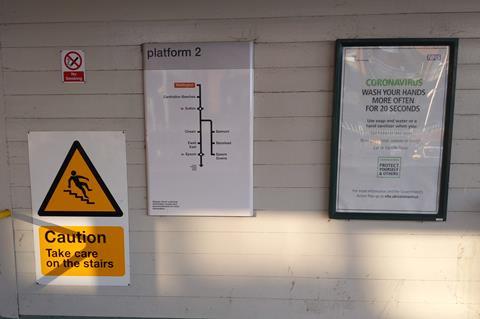
Govia Thameslink Railway said ‘this is an unprecedented situation for everyone and we – together with the rest of the rail industry – are doing our utmost to keep an essential service running for key workers who are doing such vital jobs. The message from the government is clear – travel only if you have to. The changes we are making should allow us to sustain a timetable for those who absolutely have to travel such as doctors, nurses and the emergency services.’
Grand Central said it would be moving to a resilience timetable with the aim of maintaining a robust and reliable service while adapting to the impact of the evolving advice from the government and taking into account that some of staff and suppliers’ staff may not be available for work.
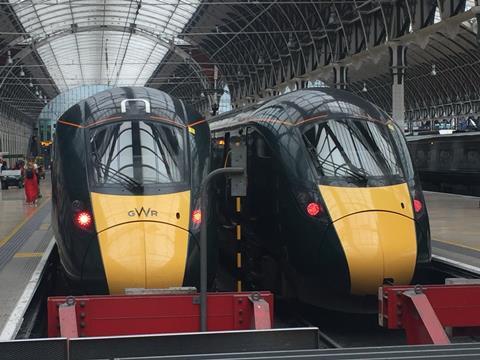
Great Western Railway said ‘our responsibility is to run a service that can be relied upon at this time. We are taking sensible measures to make sure we are able to do so.’
Greater Anglia said its reduced timetable ‘reflects the mix of factors affecting train travel in these challenging times. We need to continue to provide a reliable service for those who are working and still need to travel. At the same time, we need to run a timetable where the service can still be provided consistently, as some of our staff may need to self-isolate. We will keep the timetable under review to ensure that it is appropriate for the emerging situation.’
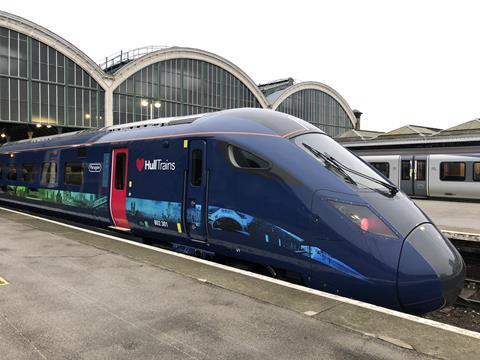
Hull Trains has already introduced a reduced timetable to provide a resilient service.
LNER said its temporary timetable changes would see it continue to run services throughout the day, including at peak times, serving core routes and key interchange stations and enabling passengers to connect between inter-city and local services run by other operators.
Merseyrail services began running every 30 min on each route from March 19, with all trains formed of six cars. The operator said ‘there are likely to be further amendments to our timetable over the coming weeks’
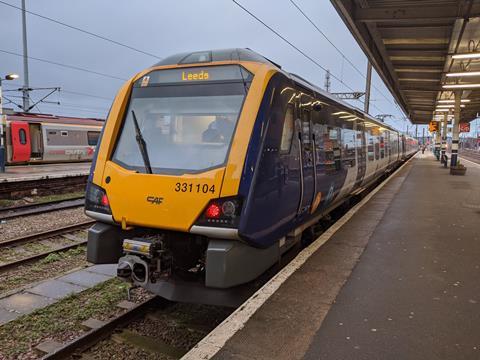
Northern has suspended the selling of tickets on board trains, saying passengers should buy before boarding, from stations, ticket machines, or online via the internet or mobile app. This will free up conductors to help customers as needed.
ScotRail said its reduced service would be similar to a Sunday timetable, with some additional first and late last trains for key staff.
Southeastern said enough capacity would be provided to allow passengers making essential journeys to follow the official guidance on social distancing. All stations will remain open, although on some routes passengers may need to change trains to complete their journeys. Wherever possible it will ensure that early morning and late evening services remain in the timetables.
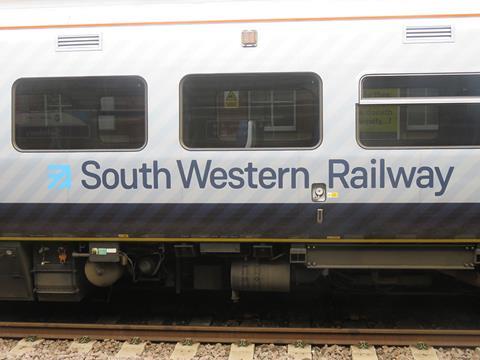
South Western Railway said ‘running fewer trains means we can offer a more reliable timetable that still gets key workers, such as doctors and nurses, to and from work. The outbreak has put the country in a unique place, but it’s vital our industry helps its day-to-day running.’
TransPennine Express said ‘these are truly extraordinary times’, and the decision to run a revised timetable had been made to allow it to concentrate on maintaining a core service across all routes, as well as providing ‘a consistent and reliable service for those who still need to use our services’.
Transport for Wales Rail said a Sunday timetable would apply seven days a week, with some additional services on selected urban commuter routes. Ticket office opening hours will also be amended to reflect the changes in train services.
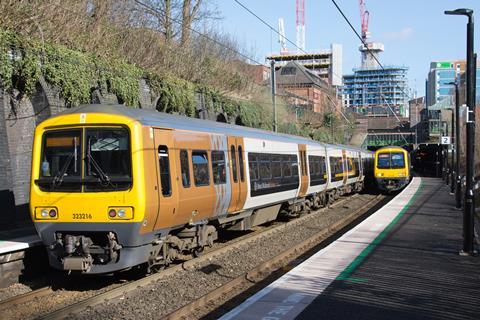
West Midlands Trains will operate just over half of its usual weekday level of service. ‘Revising our timetable is the most effective way of making sure we continue to run a regular, reliable service to keep people moving in these exceptional circumstances’, the operator said. ‘Like every employer in the country we have a number of our staff currently in self-isolation and attempting to continue with our regular timetable would be impossible’.
Freight
Rail Freight Group Director General Maggie Simpson said ‘in these unprecedented times, the rail freight industry is doing all it can to ensure delivery of vital supplies for supermarkets and retailers, manufacturers and businesses’.
Trade unions
General Secretary Mick Cash said the RMT and other unions remained ‘in close contact with the DfT at this critical time for the transport industry. Our priority is to ensure that all action is taken to protect jobs, livelihoods and the health and safety of our members. Nothing should be ruled out to ensure that capacity, skills and infrastructure are protected to avoid collapse of services and guarantee that the transport sector is ready to step operations back up when the current crisis eases.’
TSSA welcomed government confirmation that transport workers would be classified as key workers during the coronavirus pandemic. General Secretary Manuel Cortes said ‘across the rail unions we are unified in our support for keeping the rail network operating during this war effort situation. But we also need guarantees from government and employers about how our members’ interests will be protected during this period. That’s why we have called for the suspension of various processes including reorganisation and redundancy programmes during the duration of the pandemic in return for a period of calm and co-operation’.



